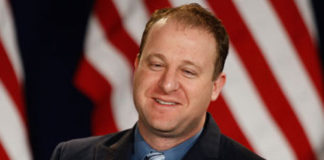
- A new poll from The Trevor Project found that a majority of U.S. adults (62 percent) say they’d be comfortable if their child came out to them as lesbian, gay, or bisexual.
- Fifty percent said they’d be comfortable if their child came out to them as being nonbinary or transgender.
- Previous research found that LGBTQ youth who report feeling supported and accepted by the adults in their lives have significantly lower odds of attempting suicide.
The Trevor Project released the results of a new poll revealing that the majority of adults in the U.S. say they’d be comfortable if their child came out to them a lesbian, gay, or bisexual.
However, fewer adults expressed the same level of comfort if their child were to come out as transgender or nonbinary.
Similarly, U.S. adults showed less familiarity with issues surrounding transgender and nonbinary identities, like using the correct pronouns for a person.
During a tumultuous time for LGBTQIA+ rights in the U.S., the new poll pulls back a curtain on how these young people are being perceived by adults, guardians, and mentors in their lives, with experts underscoring the importance of empathy and understanding for LGBTQ young people in order to improve their mental and physical health outcomes.
For the new poll, Morning Consult surveyed 2,210 adults in the U.S. between February 18 and 19. The results show that almost two-thirds of adults (62 percent) say they would be comfortable if their child came out to them as either gay, lesbian, or bisexual, and just 13 percent said they would not be comfortable at all.
On the flip side, 50 percent said they would be comfortable if their child came out to them as being nonbinary or transgender.
Just 18 percent said they would “not be comfortable at all” if their child came out as transgender, with 16 percent reporting complete discomfort if their child came out as nonbinary, according to a press release from The Trevor Project.
That being said, 72 percent of surveyed adults said they would be “confident that they would be able to understand and support their child if they came out as transgender and/or nonbinary,” according to the release.
The poll also revealed that 49 percent of adults would be comfortable if their child began using they/them pronouns as opposed to he/him or she/her pronouns, and 1 in 5 respondents said they “would not be comfortable at all.”
Awareness appears to play a big role in whether adults said they would be comfortable.
Those who were most aware of the fact that people use gender-neutral pronouns “generally were more comfortable about the prospect of their child using they/them pronouns,” the release reads.
On the other end of the spectrum, adults who weren’t aware of gender-neutral pronoun use were 2.4 times more likely to not be able to fully understand or support nonbinary and/or transgender children in their life.
Issues of visibility continued to be spotlighted by the poll.
Just 29 percent of adults reported knowing someone who is transgender, while 17 percent said they know someone who is nonbinary.
Beyond this, 69 percent said they know someone who is gay, while 65 percent report knowing someone who is a lesbian.
Just 48 percent of adults reported knowing someone who is bisexual.
For those who knew that someone is trans or nonbinary, 67 percent reported knowing “one or two people,” while just 9 percent said they knew more than seven people who had these identities.
Comparatively, 20 percent of surveyed adults reported knowing “more than seven gay, lesbian, bisexual, queer, or pansexual people,” according to the release.
Just 3 percent of U.S. adults said they did not understand the term transgender itself, and 12 percent reported not understanding the term nonbinary.
Also, 19 percent said they do not understand the term pansexual.
When asked what was most surprising about the results of the survey, Casey Pick, JD, senior fellow for Advocacy and Government Affairs at The Trevor Project, told Healthline that she was struck that “less than half of U.S. adults reported personally knowing someone who is bisexual.”
“Given that bisexual people make up such a large percentage of the LGBTQ community, it was a bit unexpected to learn that most respondents couldn’t say that they personally knew someone who is bi,” Pick added.
This new survey comes at a time when LGBTQIA+ identities seem to be centered directly as a point of contentious political debate. Pick said that the data points that reveal nearly two-thirds of adults would be comfortable with a child’s LGB identity “point toward a larger societal trend of acceptance surrounding LGBTQ identities.”
“As we continue to increase representation, understanding, and education around LGBTQ people, it makes sense that we might see most people feel comfortable with the idea of raising an LGBTQ child,” Pick explained.
“At a time when our political climate is especially hostile toward LGBTQ youth, these data can provide us with a sense of hope. While we still have a lot of work to do in advocating for LGBTQ youth – and transgender youth in particular – these findings offer a positive reminder that a significant amount of progress has been made over the last few decades. And we can continue building on that progress moving forward,” she added.
The data are more complicated when moving toward issues around gender identity.
Fewer adults seemed comfortable with the idea of their children coming out as transgender or nonbinary and Pick said these numbers show “we have a lot of work to do when it comes to increasing people’s understanding of transgender and nonbinary identities.”
“We need more transgender and nonbinary representation in media, as well as more public education around gender identity in schools. Unfortunately, we are seeing misguided lawmakers push for the opposite – working hard to censor LGBTQ people, history, and culture in schools through efforts like Florida’s recent “Don’t Say Gay/Trans” law,” Pick said. “So, while we need to increase learning about gender identity, we also need to focus on how to get people to challengemuch of the stigma and misinformation that they have been taught, too.”
Heather Zayde, LCSW, is a Brooklyn-based clinical social worker and psychotherapist who was not affiliated with this survey.
When asked to contextualize the importance of having this kind of survey released she said, while it shows “parents are growing increasingly more comfortable with their children coming out,” the “numbers are still staggeringly low.”
“My take on lower numbers is that when children come out, many parents are terrified for them and their safety. Every parent wants their child to be happy and healthy. Given that violence against the LGBT+ community is very real and often prevalent, parents are often fearful that their child’s identity will put them in danger,” Zayde told Healthline. “The new anti-LGBT legislation contributes significantly to that as it says to parents that not only might your child be bullied or hurt by others, but they could be by the very government meant to protect them.”
Zayde also added that the new legislation sends a negative, dangerous message that “saying — and being — gay is wrong,” which can affect parents’ feelings about their own children.
“I think that the discrepancy between LGB [lesbian, gay, bisexual] and T [transgender, nonbinary] identities has a lot to do with how society does and doesn’t openly discuss identities,” she explained. “Many people are knowledgable about LGB identities but a trans or nonbinary identity is confusing to them, and often people fear what they don’t understand.”
“Learning more about what it means to be trans or nonbinary can take away some of the stigma and confusion around it and make people feel more understanding, compassionate, and inclusive. This is the exact opposite of what this new bigoted legislation is calling for,” Zayde said.
In terms of the evidenced gap between understanding of LGB identities versus trans and nonbinary identities, Zayde said “LGB identities have been in the common vernacular longer than trans and nonbinary,” pointing out that “when something is new for someone, it’s often scary.”
“The more we speak about trans and nonbinary identities and the more we can educate people on what they mean, the more acceptance we can hope to get from the public. I think people can feel overwhelmed when they feel they need to learn a new way of communicating, and learning to ask for and use correct pronouns is a very new way of thinking and processing,” Zayde said.
“Learning about pronouns and hearing respectful and inclusive pronoun use modeled in the community can help people become more confident in communicating with others and therefore lead to more accepting attitudes,” Zayde added.
Recently, health experts have signaled just how dangerous legislation like the “Don’t Say Gay Bill” in Florida will be for LGBTQIA+ young people and their families.
Putting all of that in context with the new poll, Pick cited past research from The Trevor Project that shows “LGBTQ youth who report feeling supported and accepted by the adults in their lives have significantly lower odds of attempting suicide.”
“These findings show that the majority of respondents do, in fact, want to support and affirm LGBTQ youth. This is noteworthy, especially given that The Trevor Project often hears from LGBTQ young people who do not feel supported by their families, or their parents, or other adults in their community,” Pick said. “We hope that these data can reinforce the reality that there are many people who support them in being their authentic selves.”
Zayde said that greater awareness of LGBTQIA+ identities “can give people more confidence in interacting with people of all types.”
She recalled working with a parent who was intimidated by the act of their child coming out as nonbinary “because he didn’t know what language to use and was afraid of saying the wrong thing.”
“It was only after being guided toward learning about inclusive language and feeling comfortable asking his child about their chosen pronouns that he gained the confidence to feel like he could interact without fear and their relationship was able to improve,” Zayde said.
She added that “schools can have a huge impact on parental acceptance when librarians, teachers, and school counselors can recommend books to enhance parental learning on these subjects.
“When school staff is silenced, parents lose a tool they have to help them learn more about and engage with their child in a healthy and supportive way. When children aren’t supported it leads to increased depression, anxiety, and suicidality, so this is really a life or death situation,” she explained.
When asked what more could be done to improve the visibility of LGBTQIA+ identities and issues and educate uncomfortable adults about how to advocate for and support young people, Zayde said that “the more we can share ourselves and our stories the better.”
This includes more inclusion of trans and nonbinary characters through television and books, which can “model respectful behavior.”
“School libraries and classrooms should have inclusive media so that children are learning respect and understanding of all identities from an early age. I like when people introduce themselves and include the pronouns they use because it invites others to do the same,” she said. “We need to be talking about this in order for people to learn and grow and understand. The silence demanded by much of this new legislation will only lead to discrimination and deep harm to our world as a whole.”
For Pick, this is a time of action to support and help LGBTQIA+ youth.
“We are witnessing a wave of anti-LGBTQ legislation in states across the country that targets LGBTQ youth, and trans youth in particular. These findings indicate that these harmful laws — being pushed by anti-LGBTQ lawmakers in hopes that they can score cheap political points — are not in step with the majority of their constituents’ opinions,” she asserted. “We need to continue pointing to findings like these and remind LGBTQ young people that there are more people who support them than those who want to use them for political gain.”








